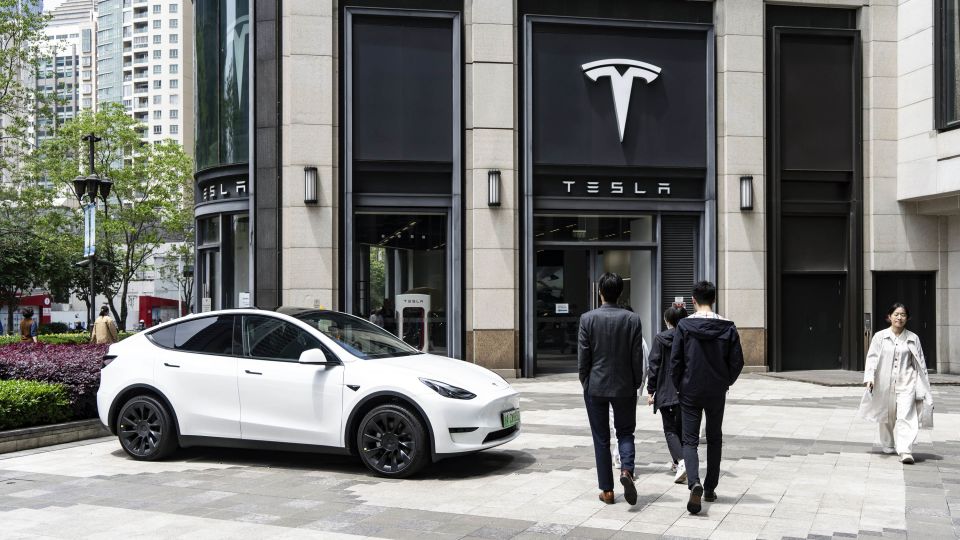Tesla is one step closer to launching full-self-driving (FSD) technology in China after striking a deal with Baidu to upgrade its mapping software.
The Chinese technology giant said Saturday that it provided lane-level navigation services for Tesla cars. Baidu (BIDU) says this level of navigation can provide drivers with detailed information, including making lane recommendations ahead of upcoming turns, to increase safety.
Experts said during Tesla (TSLA) CEO Elon Musk’s surprise visit to China In late April, he announced that one of his main hurdles in gaining government approval to roll out the company’s FSD software was striking a mapping and navigation deal with Baidu.
“With the support of Baidu’s lane-level map, Tesla’s navigation can accurately reflect the lane changes on the road the user is currently on, upgrading from road-level guidance to lane-level guidance,” Baidu said in the statement.
China’s answer to Google has been providing mapping services to Tesla since 2020. But before Saturday’s announcement, the services were limited to “road-level” information, which is less accurate than lane-level navigation.
A day earlier, Tesla launched its new software upgrade for users in urban areas in China, the world’s largest car market. a statement on WeChat that such detailed road information was made available “for the first time”.
CNN has reached out to Tesla for comment. On Monday, Baidu declined further comment.
Nearly all Teslas have a driver assistance system called Autopilot, while the more robust FSD feature comes at a premium price. Autopilot is available in China, but not the full FSD function.
Partnering with Baidu would remove an obstacle, as the Chinese company has key mapping credentials that can be applied to driver assistance features.
According to Chinese regulations, all self-driving systems must obtain card qualifications before they can be used on public roads. Foreign car companies must collaborate with recognized Chinese companies to qualify for survey and mapping.
By partnering with Baidu, Tesla could run its fully self-driving system on China’s public roads, with its vehicles able to collect environmental data such as road layout, traffic signs and buildings.
It could also accelerate Tesla’s global development of its self-driving technology, as data from China could be used to train Tesla’s algorithms needed for fully autonomous vehicles.
Car owners have long complained on social media about Tesla’s previous navigation services, which were also provided by Baidu, saying they often rely on other maps available on smartphones while driving.
“This time you can actually remove the cell phone holders (that are mounted in the car),” Tesla said in its Friday announcement, suggesting drivers will no longer need other maps for navigation.
The news went viral on Chinese social media on Monday.
“After the system upgrade, I no longer need to use my mobile phone to navigate,” said one Weibo user. “Tesla’s (own) navigation system can finally be used.”
The introduction of the FSD system could mean a sales boost for Tesla, which is struggling in China. In April, it cut prices for its automotive product lines in the country, hoping to boost sales in the face of declining demand and increased competition.
For more CNN news and newsletters, create an account at CNN.com







